America, as a concept, is fundamentally in need of constant re-evaluation. Times change, the people change with them, and when you’re dealing with a population of over 352 million people, change can be drastic. Which is why it’s a dangerous choice to root a character so heavily in the idealism of classic Americana. To do so would be to court failure, in any day and age. But to do so and keep that character popular and socially relevant for just shy of a century? That sound impossible. And yet it’s been accomplished not once, but twice.
Superman and Captain America are essentially two sides of the same coin.
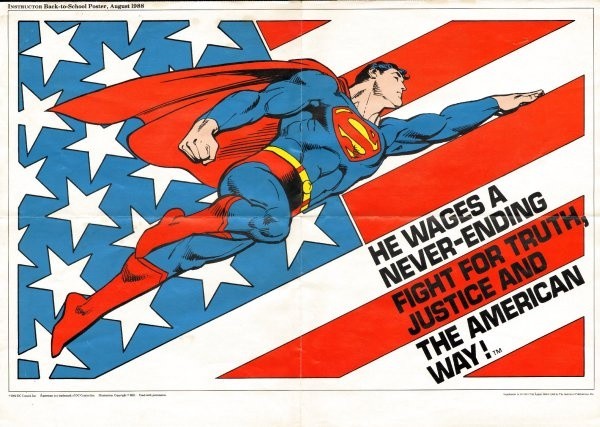
The former, originally published by DC comics in 1938, was an all-American superhero from the very onset. He wore the colors of the American flag as he fought for ‘truth, justice, and the American way’. And perhaps the most American thing about him was exactly what he had in common with everyone else in the country; he was an immigrant. Sent from his home planet of Krypton, he made the treacherous voyage as a child to come to the land of the free. Upon landing in Smallville, Kal-El was embraced by a blue-collar, Midwestern family who imbued in him the classical American values that would go on to become the mantra of his life. Upon successfully completing his schooling, Kal-El moved from the quaint hometown farming of Smallville to the complex and sophisticated utopia of Metropolis.
The latter, originally published by Timely comics in March of 1941, was an inspired piece of American propaganda. He was the literal ‘star-spangled man’, wearing the flag as a costume and debuting in an issue whose cover depicted him sucker punching ‘ole Adolf right in the kisser. It was a piece of entertainment and wish-fulfillment, allowing Americans the chance to see themselves as the heroes of a conflict that had yet to even become their own. Then, of course, a mere nine months later, the war became very much America’s own. The bombing of Pearl Harbor on December 7, 1941, put America squarely in the middle of the battlefield and Captain America followed suit. Timely comics lived up to their name, producing entertainment that was incredibly vital to its time period and sold well but was immediately dating itself even as it did so. Thus, when the war drew to a close, so too did Captain America’s popularity.
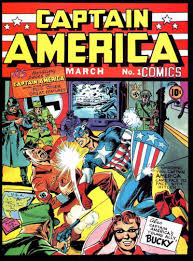
Both characters were founded upon the concepts of patriotism, but where Superman was steeped in a timeless sheen of manifest destiny-driven pride, Captain America was rooted in a specific time and place that left him feeling dated by the end of the decade. So, why is it that in 2018, the cinematic incarnation of Captain America is so much more socially relevant than the cinematic incarnation of Superman?
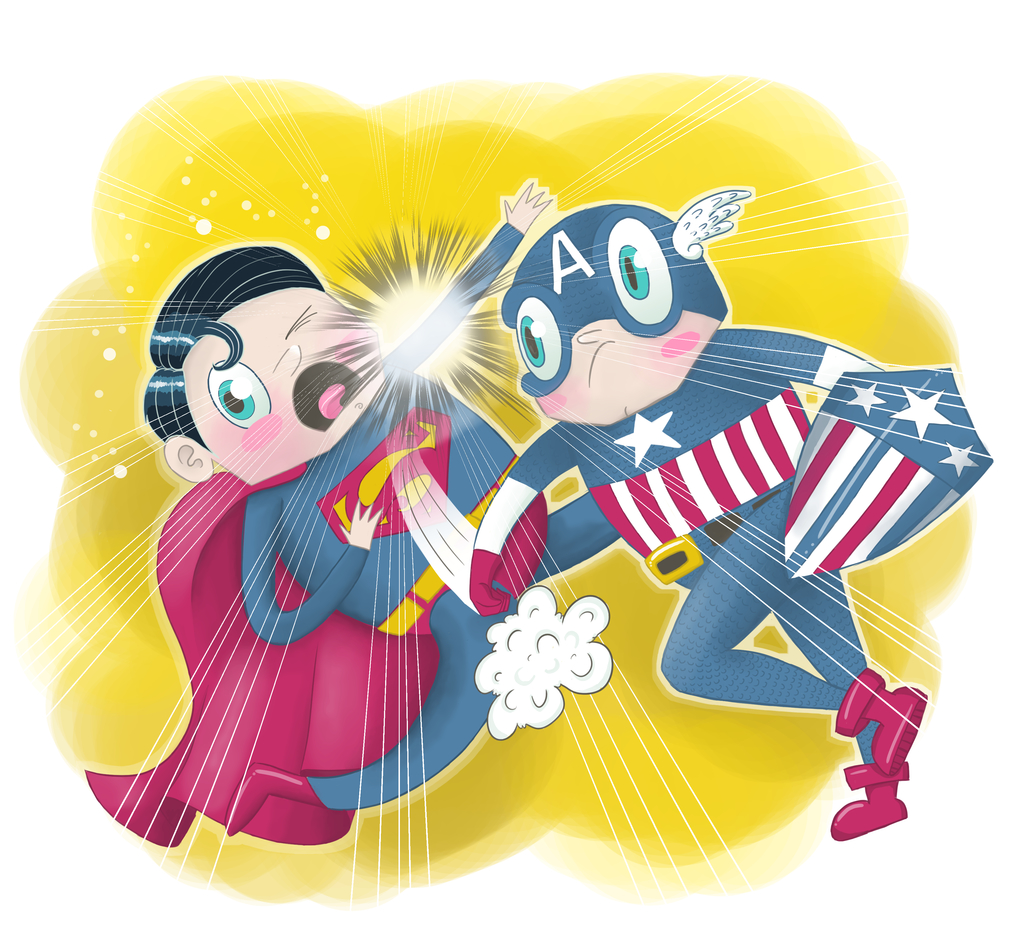
Original artwork by deadbinky.
Marvel and DC have obviously approached their cinematic universes in vastly different ways, on vastly different time-tables. For a frame of reference, Marvel released its first big-event crossover (The Avengers) the same year that DC released The Dark Knight Rises. That’s neither a positive nor negative, it’s simply a fact, but one that holds great importance. As DC released the final installment Nolan’s Batman trilogy, Marvel was six films deep into a film series that was still only beginning. From a financial perspective, for DC to not follow suit would be to actively throw money away. Especially considering that while Marvel was dealing with superheroes largely seen as B-listers such as Iron Man and Captain America, DC had pop culture staples such as Batman and Superman in their reservoir.
On June 14, 2013, DC released Man of Steel, a rebooted Superman film that had been in the works, in one way or another, for nearly a decade. The film was released to a widely split opinion from both critics and audiences but this did not stop DC from announcing less than a month later that they were shifting gears from simply making a Superman sequel to making Batman v. Superman that would lead into Justice League.
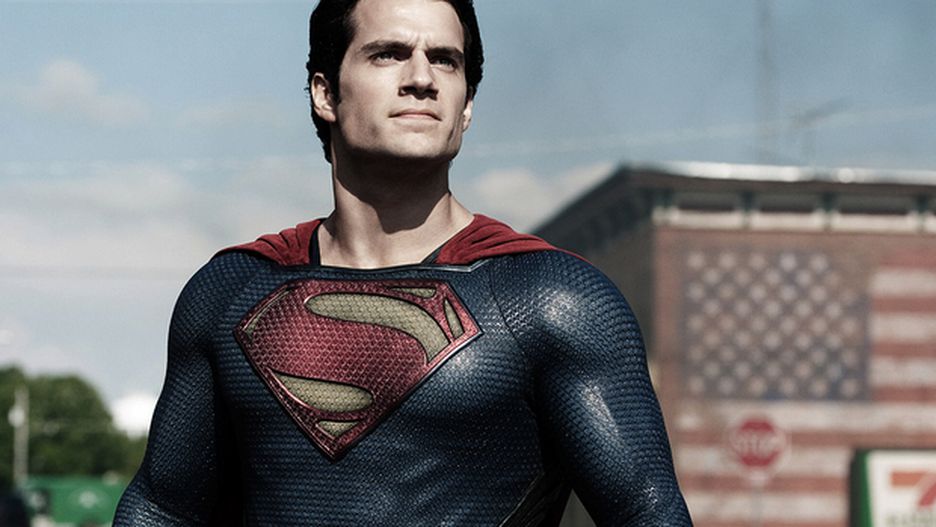
Again, neither a positive nor a negative, just a fact. But a fact that demonstrates the key difference between the approaches of these two studios: patience.
When comparing Man of Steel to Captain America: The Winter Soldier, the similarities are apparent. Both feature a protagonist removed from their homes, trying to do what is best in a world in which they do not feel at home until someone from their past resurfaces to haunt them. Both are actively working to deconstruct the American ideology upon which their characters were founded and examine how it works in a modern context, in both the text and the subtext. But for all of the similarities, the difference is what stands out the most and that is character.
The Winter Soldier wasn’t Captain America’s first film. In 2011, Marvel released Captain America: The First Avenger, a film that thoroughly embraced that character’s origins. It was an all-out homage to the serialized tales of old that didn’t shy away from the less-than-modern aspects of the source material. Cap stands as a representation of classical American ideology; a scrawny kid from Brooklyn with a heart of gold who goes off to war and becomes a hero.
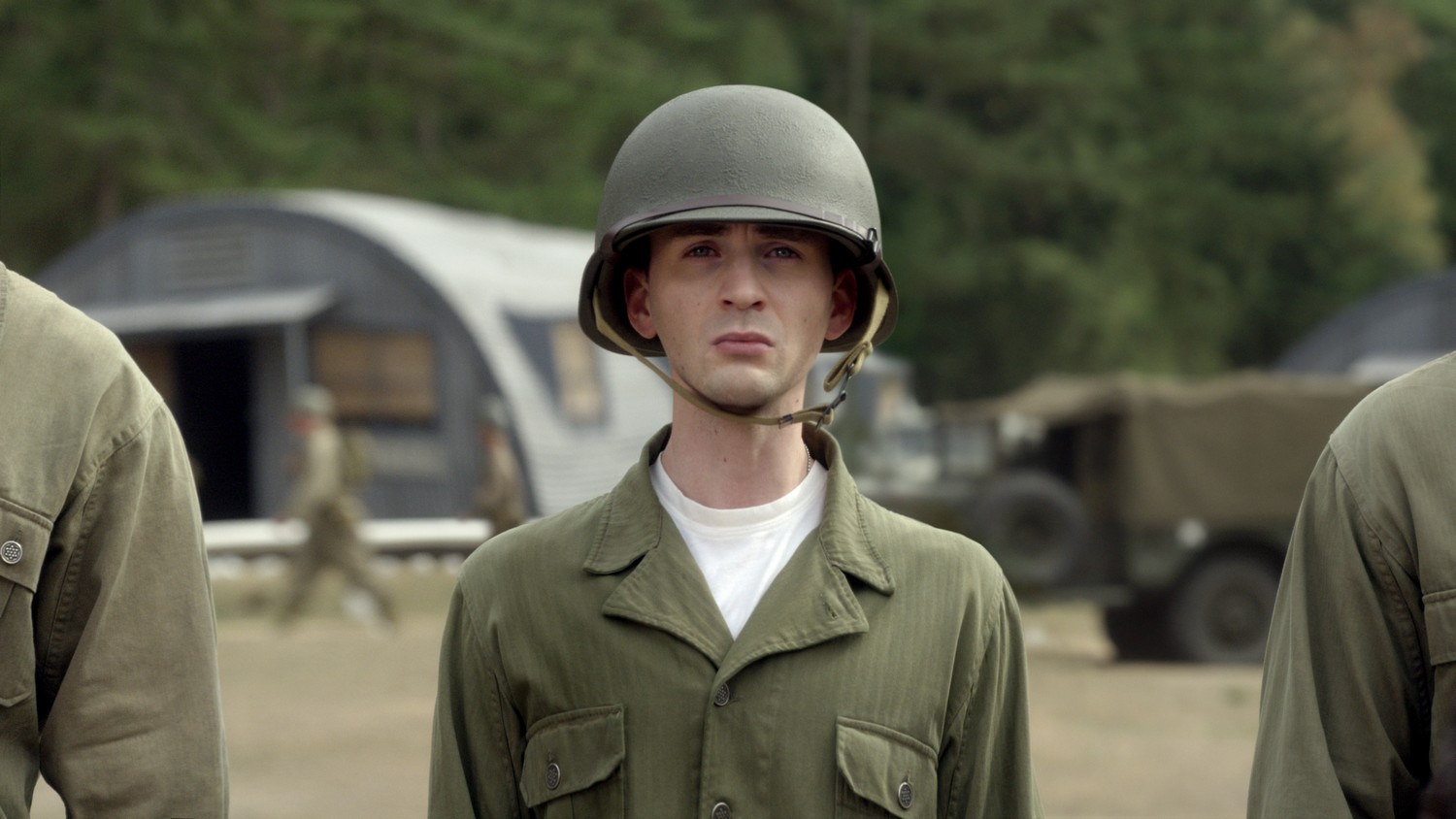
The First Avenger builds a relationship between us and Captain America and cements his ideology. Thus, when Winter Soldier rolls around, we experience the challenging of his morals and beliefs with him. On top of this, he becomes a literal embodiment of the values of old America clashing up against the values of new America. As he enters into a tale of political espionage, it is completely beyond his own understanding of what warfare is. And when it is revealed that institution he stands for, S.H.I.E.L.D., is nothing more than a front for the very villains he swore to defeat, it takes a toll on him and on us.
But Superman never had a First Avenger.
In the interest of making the character relevant to modern audiences, Man of Steel forces Kal-El to face challenges right from the get-go. The character is introduced to us as a down-trodden loner, far-removed from family or home, who is constantly on the run. This dynamic shift would be a powerful one if we knew what this version of Superman even stood for. But Man of Steel is so busy offering a modern, cynical foil to Superman’s classical beliefs that it forgets to actually give Superman those beliefs. It completely bypasses an entire section of Campbell’s ‘The Hero’s Journey’, in favor of immediately inserting audiences into the conflict of a second act.
Which is just a symptom of the larger issue: a complete lack of patience. It’s how you get a film that challenges a character on every level and yet fails to elicit any meaningful response. It’s how you get a foundation that is unfit to support years of cinematic adventures to come. And most notably, it’s how you get a The Death of Superman adaptation in the second film. Everything is accelerated, leaving little room for anything to have meaning, purpose, or relevance.
Meanwhile, Captain America is arguably more relevant than ever before. Because America, as a nation, is facing tremendous conflict right now. It’s not in the form of warfare that we’re used to. Instead, it’s the remnants of an evil we thought we had gotten rid of, that has instead just been festering within our institutions all of this time. He is the classic all-American hero, forced to come to terms with the reality of an America that is no longer the one he grew up believing in.